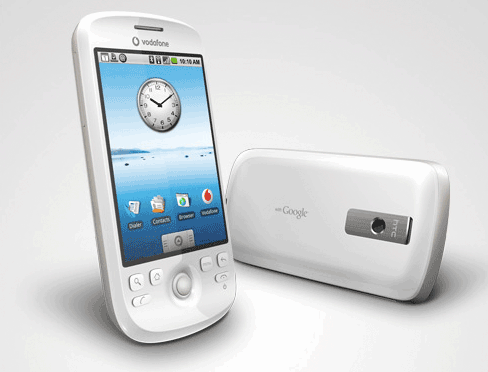 Bloomberg is reporting that Eee PC titan Asus is playing around with the idea of building a netbook that runs Android, Google’s Linux-based operating system. Android is debuting on phones–HTC just announced the Magic, the second Android handset–but Google says the OS could power computers, too.
Bloomberg is reporting that Eee PC titan Asus is playing around with the idea of building a netbook that runs Android, Google’s Linux-based operating system. Android is debuting on phones–HTC just announced the Magic, the second Android handset–but Google says the OS could power computers, too.
Android is designed for devices without a lot of computing horsepower, and manufacturers don’t have to pay Google a license fee–two qualities that might conceivably make it a formidable competitor to Windows on netbooks. But it’s not immediately clear–at least to me–why Android would be a better match for netbooks than Ubuntu, the Linux that Asus and other netbook vendors already use. [CORRECTION: Janet Rae-Dupree reminds me that Asus uses Xandros, not Ubuntu.] Ubuntu already has a PC-style user interface, and it’s compatible with an array of applications; Android would need work on both fronts before it was ready to run on netbooks. And even then, it might end up looking…a lot like Ubuntu.
Ultimately, I don’t think it would make much sense for Asus or any other hardware manufacturer to pour resources into trying to make Android netbook-friendly. You’d want Google in on the project, and I don’t know just how intriguing the company finds the idea of putting its OS on fairly traditional computing devices. I do think, however, that it would make sense for Google to finish the work of making Android a truly compelling iPhone OS alternative before it takes on Windows. (On the T-Mobile G1, the first Android handset to ship, the OS is neat…but it feels like a rough draft. Maybe it should sport a Google-style “BETA” disclaimer every time you turn your phone on.)
One of the more interesting questions in the whole world of tech right now is the fate of Android. It’s bursting with promise, and it wouldn’t stun me to see it become the most widely-used smartphone OS at some point…at the very least, that scenario seems about as plausible as any other. And if Google wants netbook manufacturers to give Android a try, it can presumably make it happen.
It’s still tough to tell, however, just how committed to Android Google is, and how persistent it’ll be if the OS isn’t an immediate success with obvious benefits to the company. Anyone want to hazard any guesses about where Android will be, say, two years from now? Will it exist in any form in a decade?
 T-Mobile has been one of Google’s biggest supporters in the US when it comes to Android. Confidential documents obtained by the New York Times indicate that the carrier plans to take that partnership even further with at least two new devices due to launch in 2010.
T-Mobile has been one of Google’s biggest supporters in the US when it comes to Android. Confidential documents obtained by the New York Times indicate that the carrier plans to take that partnership even further with at least two new devices due to launch in 2010.

 Bloomberg is reporting that Eee PC titan Asus is playing around with the idea of building a
Bloomberg is reporting that Eee PC titan Asus is playing around with the idea of building a  Part of the big news from day one at Mobile World Congress was that there was no big news involving Google’s Android mobile operating system: None of the
Part of the big news from day one at Mobile World Congress was that there was no big news involving Google’s Android mobile operating system: None of the 
 It’s tempting to crack a joke about “Skip Intro” coming soon to a smartphone near you. But seriously, this is good news: Here at Mobile World Congress in Barcelona, Adobe is announcing that it
It’s tempting to crack a joke about “Skip Intro” coming soon to a smartphone near you. But seriously, this is good news: Here at Mobile World Congress in Barcelona, Adobe is announcing that it